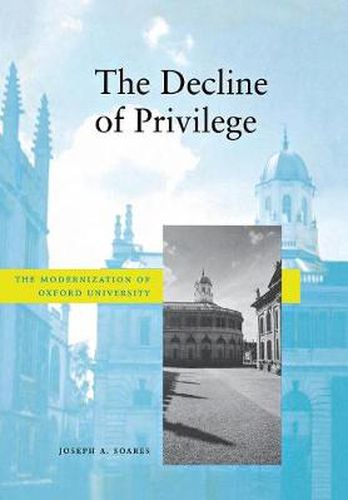Readings Newsletter
Become a Readings Member to make your shopping experience even easier.
Sign in or sign up for free!
You’re not far away from qualifying for FREE standard shipping within Australia
You’ve qualified for FREE standard shipping within Australia
The cart is loading…






This work studies Oxford University’s transformation - and the political hazards for academics that ensued - when, after World War II, it changed from a private liberal-arts club with aristocratic pretensions into a state university committed to the natural sciences, and with a middle-class constituency and meritocratic ethos. Despite these changes, this work shows that Oxford has not been able to elude its long-standing Brideshead Revisited reputation. This antiquated image became a source of difficulties when the Labour Party in the 1960s sought to expand educational opportunities to promote the cause of social justice. In the 1980s the University again came under attack, this time for its supposedly anti-industrial ethos, as Margaret Thatcher’s Conservative Party attempted to reverse Britain’s economic decline. During its transformation, Oxford lost its upper-class ties, its financial self-sufficiency, and its deferential friends in government. As a result, it was at its weakest when the Thatcher government sought to harness universities to goals of economic competition.
$9.00 standard shipping within Australia
FREE standard shipping within Australia for orders over $100.00
Express & International shipping calculated at checkout
This work studies Oxford University’s transformation - and the political hazards for academics that ensued - when, after World War II, it changed from a private liberal-arts club with aristocratic pretensions into a state university committed to the natural sciences, and with a middle-class constituency and meritocratic ethos. Despite these changes, this work shows that Oxford has not been able to elude its long-standing Brideshead Revisited reputation. This antiquated image became a source of difficulties when the Labour Party in the 1960s sought to expand educational opportunities to promote the cause of social justice. In the 1980s the University again came under attack, this time for its supposedly anti-industrial ethos, as Margaret Thatcher’s Conservative Party attempted to reverse Britain’s economic decline. During its transformation, Oxford lost its upper-class ties, its financial self-sufficiency, and its deferential friends in government. As a result, it was at its weakest when the Thatcher government sought to harness universities to goals of economic competition.